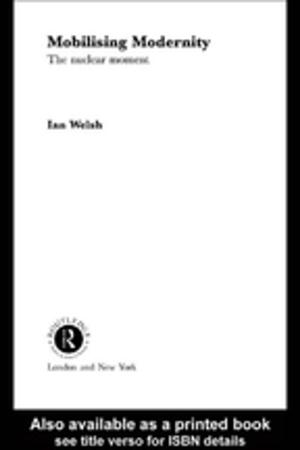Michael Costa: England's First Conductor
The Revolution in Musical Performance in England, 1830-1880
Nonfiction, Entertainment, Music, Theory & Criticism, History & Criticism, Reference| Author: | John Goulden | ISBN: | 9781317096900 |
| Publisher: | Taylor and Francis | Publication: | April 22, 2016 |
| Imprint: | Routledge | Language: | English |
| Author: | John Goulden |
| ISBN: | 9781317096900 |
| Publisher: | Taylor and Francis |
| Publication: | April 22, 2016 |
| Imprint: | Routledge |
| Language: | English |
Among the major changes that swept through the music industry during the mid-nineteenth century, one that has received little attention is how musical performances were managed and directed. Yet this was arguably the most radical change of all: from a loose control shared between the violin-leader, musical director and maestro al cembalo to a system of tight and unified control under a professional conductor-manager. This process brought with it not only baton conducting in its modern form, but also higher standards of training and discipline, a new orchestral lay-out and a more focused rehearsal regime. The resulting rise in standards of performance was arguably the greatest achievement of English music in the otherwise rather barren mid-Victorian period. The key figure in this process was Michael Costa, who built for himself unprecedented contractual powers and used his awesome personal authority to impose reform on the three main institutions of mid-Victorian music: the opera houses, the Philharmonic and the Sacred Harmonic Society. He was a central figure in the battles between the two rival opera houses, between the Philharmonic and the New Philharmonic, and between the venerable Ancient Concerts and the mass festival events of the Sacred Harmonic Society. Costa’s uniquely powerful position in the operatic, symphonic and choral world and the rapidity with which he was forgotten after his death provide a fascinating insight into the politics and changing aesthetics of the Victorian musical world.
Among the major changes that swept through the music industry during the mid-nineteenth century, one that has received little attention is how musical performances were managed and directed. Yet this was arguably the most radical change of all: from a loose control shared between the violin-leader, musical director and maestro al cembalo to a system of tight and unified control under a professional conductor-manager. This process brought with it not only baton conducting in its modern form, but also higher standards of training and discipline, a new orchestral lay-out and a more focused rehearsal regime. The resulting rise in standards of performance was arguably the greatest achievement of English music in the otherwise rather barren mid-Victorian period. The key figure in this process was Michael Costa, who built for himself unprecedented contractual powers and used his awesome personal authority to impose reform on the three main institutions of mid-Victorian music: the opera houses, the Philharmonic and the Sacred Harmonic Society. He was a central figure in the battles between the two rival opera houses, between the Philharmonic and the New Philharmonic, and between the venerable Ancient Concerts and the mass festival events of the Sacred Harmonic Society. Costa’s uniquely powerful position in the operatic, symphonic and choral world and the rapidity with which he was forgotten after his death provide a fascinating insight into the politics and changing aesthetics of the Victorian musical world.















